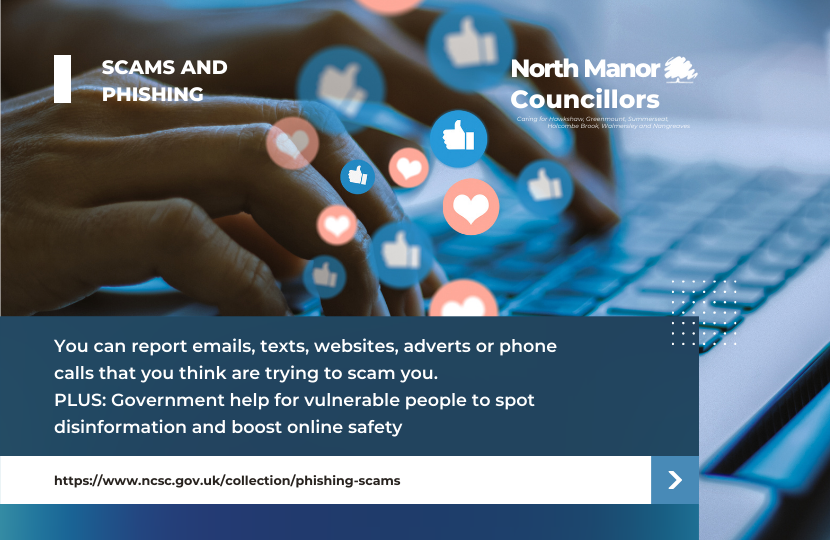
Local Councillor Liam James Dean has issued a warning to local residents to ensure they stay safe online this winter and at all times of the year with updated advice on how to report suspicious communication.
Cllr Dean told us:
“More and more often I'm now getting spam texts or calls - often trying to capitalise on the Government's generous cost of living support packages - and I know other residents have told me they've received them too.”
“Unfortunately, many people don’t know what they can do to help stop these scam artists and it’s why it’s important people are aware how to report them to the National Cyber Security Centre”
The National Cyber Security Centre (NCSC) is a UK government organisation that has the power to investigate and take down scam email addresses and websites. As of September 2022 the NCSC has received over 14 million reported scams which has resulted in over 100k scams being removed over 184k URLS.
Residents should report all emails, texts, websites, adverts or phone calls that they think are trying to scam them to the National Cyber Security Centre using the methods outlined here: https://www.ncsc.gov.uk/collection/phishing-scams
Cllr Dean added “It’s really simple things people should be aware of, like reporting texts to 7726. You can easily forward a text to this number which could potentially stop someone else being scammed. The 7726 service has removed 15,000 scams already so everyone should use it to help remove more”
It can be easy to fall victim to a scam, as scammer become ever more creative in their approach. If you’ve been tricked into sharing personal information with a scammer, you can take immediate steps to protect yourself that can be found online at https://www.ncsc.gov.uk/collection/phishing-scams/what-to-do
It used to be easier to spot scams. They might contain bad spelling or grammar, come from an unusual email address, or feature imagery or design that feels ‘off’. But scams are getting smarter and some even fool the experts. That’s why the Government have boosted funding to ensure elderly, disabled and other vulnerable people will get better support to stay safe online and avoid being misled by disinformation.
More than £1 million has been granted to 17 UK organisations to pilot new ways of boosting media literacy skills for people at risk of experiencing online abuse and being deceived into believing false information, such as vaccine disinformation, deepfake videos or propaganda created by hostile states.
Bury North Member of Parliament James Daly welcomed the news of the funding boost stating
“It’s good to see Media Literacy Taskforce Fund created and I’m pleased to see the scheme for care workers and leavers will be running in Greater Manchester using this fund.
It is imperative we do all we can to keep ourselves safe online, whether it be by reporting potential scams to the NCSC or learning about the new technology such as deepfakes – which can be extremely convincing if you’re not looking for them.
I encourage everyone to help me and local councillors spread the news of how to report potential scams – reporting a potential scammer could save someone else their life savings”


